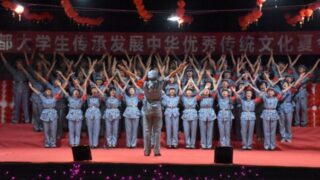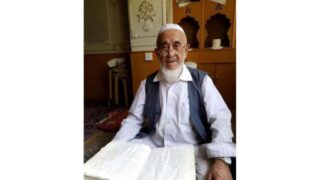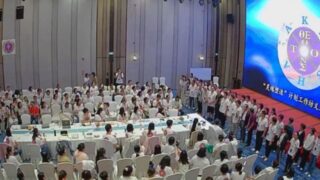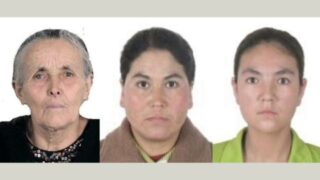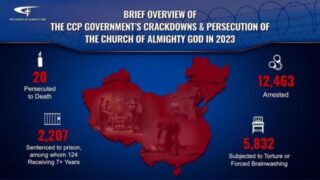These two new religious movements are considered xie jiao, and Chinese citizens are forbidden to travel abroad to attend their seminars.
On December 27, 2018, Zhang Xiaoyan, member of the new religious movement Guan Yin Citta from Fujian Province in southeastern China, was summoned for questioning by the authorities after buying a plane ticket to Malaysia for the 28th of that month. Guan Yin Citta is a new religious movement based on Buddhism founded by Master Jun Hong Lu, a Chinese teacher who lives in Australia. In October 2017, the CCP’s Beijing News published an article implying that Guan Yin Citta has been included in the list of the xie jiao.
Ms. Zhang was forced to write a “statement of commitment” assuring authorities that she would no longer go abroad to participate in religious devotions.
“I’m unable to go anywhere now. As soon as I use my ID card to buy tickets, I will be monitored,” Ms. Zhang said. She has been coerced by the authorities to give up her faith before. In April 2018, she purchased a plane ticket to Singapore to attend another devotion but was threatened to be removed from her job in the public sector.
Recently, Bitter Winter obtained a confidential document issued by the authorities in a county in Fujian Province. The document, titled Notice on Conducting the Special Work of a Massive Investigation, Massive Purge and Massive Research of Guan Yin Citta, states that Guan Yin Citta was introduced from Australia to China in 2009 and developed rapidly. It has been listed as a xie jiao for “not being legally registered in China” and “being out of the Chinese Communist Party (CCP)’s control.”






The document also states that the authorities should make full use of legal, administrative, economic and other means to crack down on the Guan Yin Citta engaging in religious activities in China and prohibit local people in the county from participating in its devotions and other activities abroad.
The plight of Wang Yong – a Guan Yin Citta believer from the northern Shanxi Province’s Yangquan city – is even worse. In June 2018, Wang Yong’s passport was confiscated by the authorities, and he was transferred to another job because he attended a Gian Yin Citta devotion overseas. Not only was his daily workload increased, but his monthly salary was also reduced by more than 1,000 RMB (about $150).
According to sources, more than 50 people from China attended the same seminar. After returning home, most of these believers were investigated or summoned for questioning by the police.
In October 2006, Qi Yan, who lives in Xi’an, in Shaanxi Province in western China, went to Thailand together with more than 100 believers to listen to the teachings of Supreme Master Ching Hai. After returning to China, she was monitored and blacklisted by the authorities. Supreme Master Ching Hai is a Vietnamese woman born in 1951. Her teachings are largely based on the Radhasoami religion of India but also include Buddhist elements. The movement of Ching Hai, who is also internationally well-known as a fashion designer, has been listed as a xie jiao in China in 1995.
“For so many years, the government has been questioning me about going to Thailand to listen to [Ching Hai’s] teachings. It appears that I’m free, but the state is always investigating me in secret,” said Ms. Qi. What’s more, in 2016, her son was also punished because her name had been placed on a xie jiao members’ blacklist, causing him to lose a very good job.
In 2012, Ms. Qi was preparing to travel abroad, but because of her faith, she was informed that she could not get permission to leave the country. Since then, she has been continuously monitored by the authorities.
In China, the CCP often designates fast-developing new religious groups as xie jiao, such as Falun Gong, The Church of Almighty God, the Association of Disciples, and others.
In an interview with Bitter Winter, Edward Irons, Hong-Kong-based researcher, consultant, and writer on Chinese culture and religion, stated that being on the list of xie jiao means the full weight of state coercion can be applied against any individual associated with any of the groups on the list.
(All names are pseudonyms except for Jun Hong Lu, Ching Hai, and Edward Irons.)
Reported by An Xin


